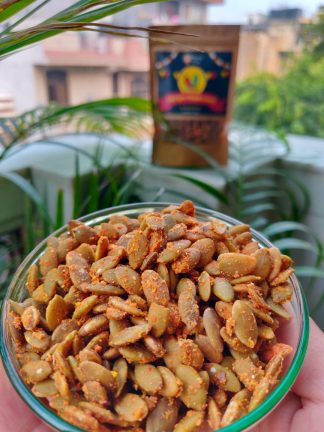
Pregnancy, a journey of profound transformation and growth, presents an intricate tapestry of joys, challenges, and changes that touch every aspect of a woman’s life. Among the myriad of adaptations and considerations during this period, nutrition and wellness take a front seat, demanding thoughtful choices to nurture both the mother and the growing life within. In this landscape of prenatal care, an ancient, yet often overlooked gem, has been making a quiet resurgence – Gulkand.
Gulkand, a sweet preserve made from delicate rose petals, is more than just a confectionary delight. In the realms of traditional Ayurvedic medicine, it has been revered for centuries, not only for its enchanting aroma and flavor but also for its therapeutic properties. The allure of Gulkand lies in its simplicity and potency – a harmonious blend of rose petals and sugar, sun-baked to perfection, yielding a concoction that is both medicinal and delectable.
In the context of pregnancy, Gulkand emerges as a natural ally, offering a bouquet of benefits tailored for the expectant mother. From nourishing the body with essential vitamins and minerals to soothing the rollercoaster of digestive and emotional changes, Gulkand stands out as a holistic remedy. But what exactly makes Gulkand a must-have in the prenatal pantry? How does this ancient recipe contribute to the well-being of both the mother and the baby?
Our exploration delves into the heart of these questions, unraveling the ‘5 Benefits of Gulkand During Pregnancy.’ Each section of this journey is designed to illuminate the facets of Gulkand’s efficacy, backed by insights into traditional wisdom and contemporary understanding. As we navigate through the benefits, we also shed light on the prudent ways to incorporate Gulkand into the maternal diet, ensuring that its sweetness is savored in balance and harmony.
Whether you are an expectant mother charting the course of a healthy pregnancy or simply a wellness enthusiast intrigued by natural remedies, this comprehensive guide to Gulkand is poised to enrich your understanding and perhaps, introduce a touch of floral sweetness to your wellness regime. So, let us embark on this aromatic journey, discovering how a jar of Gulkand can be a small, yet significant, addition to the wondrous voyage of pregnancy.
1. Nutritional Powerhouse for Maternal Health
The first remarkable benefit of Gulkand during pregnancy lies in its nutritional profile. When a woman embarks on the journey of pregnancy, her body requires additional nutrients to support not only her own health but also the healthy development of her baby. Gulkand, with its rich composition, steps in as a natural and delectable source of these essential nutrients.
A Symphony of Vitamins and Minerals
- Vitamin C: Gulkand is a good source of Vitamin C, a potent antioxidant that plays a critical role in tissue repair and regrowth. During pregnancy, Vitamin C is vital for the baby’s bone and teeth development and enhances the mother’s immune system.
- Vitamin E: Another key component of Gulkand, Vitamin E, is essential for maintaining cell integrity and promoting skin health, benefiting both the mother and the developing fetus.
- Calcium and Iron: These minerals are the building blocks for the baby’s skeletal and circulatory systems. Gulkand provides a natural source of calcium and iron, aiding in the formation of strong bones and the prevention of anemia, a common concern during pregnancy.
Bridging the Nutritional Gaps
Pregnancy often demands an increased intake of specific nutrients. Gulkand serves as a delightful way to supplement these dietary needs. For example, the calcium in Gulkand is crucial for preventing prenatal and postnatal bone density loss in mothers and for laying down the skeletal framework of the fetus. Similarly, its iron content helps in forming the placenta and supporting oxygen transport to the baby.
2. Digestive Comfort in Pregnancy
Navigating through the digestive challenges of pregnancy, such as morning sickness, constipation, and acidity, can be daunting. Gulkand offers a natural and effective solution to these common discomforts.
Soothing Digestive Aid
- Constipation Relief: The laxative properties of Gulkand make it an excellent remedy for constipation, a frequent issue during pregnancy due to hormonal changes and prenatal vitamins.
- Acidity and Heartburn: The cooling effect of Gulkand on the stomach lining helps alleviate acidity and heartburn, bringing comfort to expectant mothers.
Enhancing Gut Health
Maintaining a healthy gut is crucial during pregnancy, as it impacts the overall health of the mother and the developing baby. Gulkand, with its fiber content and soothing properties, aids in promoting a healthy gut flora, ensuring better digestion and absorption of nutrients.
3. Immunity Boost During Pregnancy
Pregnancy can be a time of lowered immunity, making expectant mothers more susceptible to infections. Gulkand steps in as a natural immune booster.
Fortifying Immune Health
- Vitamin C for Immune Support: The high Vitamin C content in Gulkand strengthens the body’s defense mechanisms, helping the mother ward off common infections and ensuring a healthy pregnancy course.
- Antioxidant Properties: Antioxidants in Gulkand combat oxidative stress, which is crucial during pregnancy to protect both the mother and the fetus from cellular damage.
Building a Shield for Mother and Baby
Regular consumption of Gulkand can help in building a protective shield against common pathogens, thereby safeguarding the health of both mother and baby. This becomes particularly important as the body undergoes various hormonal and physical changes during pregnancy.
As we delve deeper into the benefits of Gulkand in the subsequent sections, we will uncover more about its role in alleviating morning sickness, promoting skin health, and offering emotional well-being during pregnancy. Each aspect of Gulkand’s contribution to prenatal health not only highlights its efficacy as a natural remedy but also its versatility as a culinary ingredient that can be easily incorporated into the daily diet of expectant mothers.
4. Alleviating Morning Sickness and Nausea
One of the most challenging aspects of early pregnancy is coping with morning sickness and nausea. Gulkand offers a natural and effective remedy to alleviate these discomforts, making it a valuable addition to the diet of expectant mothers.
Combatting Nausea with Nature’s Elegance
- Cooling Effect: The inherent cooling properties of Gulkand play a crucial role in soothing the stomach and reducing the intensity of nausea, a common symptom in the first trimester.
- Pleasant Aroma: The fragrance of rose petals in Gulkand is known to have a calming effect on the senses, which can help mitigate feelings of nausea and provide a sense of well-being.
A Gentle Approach to Morning Sickness
- Ease of Consumption: Unlike some anti-nausea medications, Gulkand is gentle on the stomach and can be easily incorporated into the daily routine. A spoonful of Gulkand, either directly or mixed in a beverage, can bring about significant relief.
- Palatable Solution: For many women, strong flavors and odors can exacerbate morning sickness. Gulkand, with its mild and sweet taste, is often more palatable and comforting.
5. Skin Care and Emotional Well-being During Pregnancy
Pregnancy is a time of profound emotional and physical changes, and Gulkand serves as a companion through this journey, offering benefits that extend beyond physical health to emotional and skin care.
Nurturing Skin Health
- Anti-inflammatory Benefits: The anti-inflammatory properties of rose petals in Gulkand aid in reducing skin inflammation and acne, which are common due to hormonal fluctuations during pregnancy.
- Natural Moisturizer: Gulkand helps in hydrating and rejuvenating the skin, maintaining its elasticity, and preventing dryness, a frequent concern for expectant mothers.
Enhancing Emotional Wellness
- Stress Reduction: The calming properties of Gulkand are beneficial in reducing stress levels and anxiety, which are vital for a healthy pregnancy.
- Promoting Relaxation: Regular intake of Gulkand can lead to improved sleep quality and a more relaxed state of mind, contributing to the overall emotional well-being of the mother-to-be.
Incorporating Gulkand in the Prenatal Diet
With its myriad benefits, incorporating Gulkand into the prenatal diet can be both enjoyable and healthful. Here are some creative and practical ways to include this delightful preserve in everyday meals:
Versatile Culinary Uses
- As a Refreshing Beverage: Mix Gulkand in milk or water to create a soothing drink that not only hydrates but also provides the necessary nutrients and cooling effect.
- In Desserts and Snacks: Gulkand can be used as a filling in desserts or spread over toasts and crackers, offering a healthy and tasty snack option.
Recommended Dosage and Precautions
- Moderation is Key: Although Gulkand is beneficial, it’s important to consume it in moderation, especially due to its sugar content.
- Quality Matters: Opt for high-quality, preferably homemade or organic Gulkand to avoid additives and maximize health benefits.
Conclusion
In conclusion, Gulkand emerges as a multifaceted natural remedy that can significantly enhance the prenatal experience. From nourishing the body with essential nutrients to soothing the trials of morning sickness, improving skin health, and fostering emotional balance, Gulkand stands out as a valuable addition to pregnancy care.
As with any dietary supplement during pregnancy, it is recommended to consult with healthcare professionals before incorporating Gulkand into your routine. This ensures that it aligns with your specific health needs and dietary preferences.
Gulkand, with its delightful taste and profound health benefits, offers a simple yet effective way to enrich the pregnancy journey, making it a cherished companion for expectant mothers seeking natural wellness solutions.
FAQs:
- What is Gulkand and how is it made? Gulkand is a sweet preserve made from rose petals and sugar, traditionally prepared through a process of sun-baking to enhance its natural flavors and health benefits.
- Why is Gulkand beneficial during pregnancy? Gulkand is rich in essential nutrients like vitamins C and E, calcium, and iron, which are crucial for fetal development. It also aids in digestion, boosts immunity, alleviates morning sickness, and promotes skin health and emotional well-being during pregnancy.
- Can Gulkand help with morning sickness? Yes, Gulkand’s cooling properties and pleasant aroma are known to alleviate nausea and vomiting associated with morning sickness.
- Is Gulkand safe for all pregnant women? Gulkand is generally safe, but it’s advisable to consult a healthcare provider before adding it to your diet, especially if you have conditions like gestational diabetes due to its sugar content.
- How can I incorporate Gulkand into my diet? Gulkand can be added to milkshakes, smoothies, or yogurt, used as a spread on toast, or consumed directly in moderation.
- Does Gulkand have any side effects during pregnancy? When consumed in moderation, Gulkand typically does not have side effects. However, excessive consumption can lead to an increase in blood sugar levels and should be avoided, especially in gestational diabetes.
- How much Gulkand is safe to consume during pregnancy? The recommended dosage is about one teaspoon per day, but this can vary based on individual health conditions and dietary preferences.
- Can Gulkand help with digestive issues during pregnancy? Yes, Gulkand acts as a mild laxative and its cooling effect on the stomach helps with common pregnancy-related digestive issues like constipation and acidity.
- Are there any specific times when Gulkand should be avoided during pregnancy? Gulkand should be consumed with caution if you have any allergies to rose petals or are on specific medications that might interact with its ingredients.
- Where can I buy authentic Gulkand? Authentic Gulkand can be purchased from ayurvedic stores, health food stores, or online retailers. Ensure to choose a high-quality product that is free from preservatives and artificial colors.
Blog Tags:
Gulkand, Pregnancy Wellness, Nutritional Health, Morning Sickness Relief, Digestive Aid, Immune Booster, Natural Remedy, Skin Care Pregnancy, Emotional Well-being, Prenatal Diet, Ayurvedic Medicine, Natural Sweetener, Healthy Pregnancy














